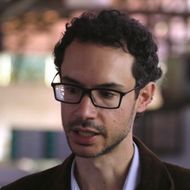Achieving Financial Independence: Experts Discuss Development of BRICS National Currency Settlements

How can BRICS countries move away from the dollar in international settlements, and what can they do to advance this goal today? These questions were discussed by experts during a round table at HSE University. The event was organised by the Multilateral Strategic Projects Office together with the HSE Faculty of World Economy and International Affairs as part of HSE’s activities within the BRICS Network University and the Joint Basic Research Projects ‘International Academic Cooperation of HSE University.’

Bruno de Conti
Despite efforts to introduce new currencies into international trade, the dollar is still used in 88% of transactions, noted Bruno de Conti, Professor of Economic Theory at the University of Campinas. This means that only 12% of transactions are conducted in national currencies. ‘The South African rand accounts for 1%, the Brazilian real has the same share, and due to sanctions, there are virtually no transactions in roubles. These figures are negligible compared to BRICS’ importance to the global economy,’ he said. Active steps to challenge the dollar’s dominance are being taken, particularly in China: the share of the Chinese yuan has risen from almost zero in 2007 to 7%. ‘There are bilateral initiatives within BRICS, and this is important especially now that BRICS is expanding,’ Bruno de Conti added.
He quoted Brazilian President Luiz Inácio Lula da Silva, who said in 2023 that he constantly wonders why all countries are forced to support the dollar instead of trading in their own currencies. According to the scholar, changing the situation requires addressing internal BRICS challenges—such as inertia and the difficulty of reconciling diverse national interests. Overcoming internal disagreements and strengthening digitalisation are essential steps forward.

Alexandra Morozkina
Alexandra Morozkina, Associate Professor at the HSE Faculty of World Economy and International Affairs, noted that the use of BRICS currencies in international trade is expanding. The share of the yuan in China’s international trade increased from 15% in 2021 to 28% in 2024. ‘The share of the rouble in total Russian exports grew from 12% in 2022 to 41% in 2024,’ she said. In 2023, a landmark deal took place: the yuan was used for the first time to settle oil transactions between the UAE and China. Increasing the liquidity of national currencies is a step towards de-dollarisation, and BRICS is gradually building the necessary infrastructure for it. ‘The BRICS Grain Exchange is also a step towards setting prices in BRICS currencies,’ Alexandra Morozkina explained.

Alexey Ponomarenko
Alexey Ponomarenko, Professor at the HSE Joint Department with the Bank of Russia, presented a concept for creating a closed international settlement system and discussed in detail models for such settlements, using the Mariana Project as an example. He pointed out that in designing such a system, the requirements for a single technical settlement unit are minimal, meaning that no specific changes to the monetary systems of participating countries would be necessary. Prof. Alexey Ponomarenko emphasised the importance of automatically determining exchange rates—a mechanism that could naturally regulate payment flows.
The round table was moderated by Olga Biryukova, Associate Professor at the HSE Faculty of World Economy and International Affairs. Anastasia Vyskubina, Head of the Online Project Support Department at HSE University, also took part in the discussion.
See also:
HSE Scientists Optimise Training of Generative Flow Networks
Researchers at the HSE Faculty of Computer Science have optimised the training method for generative flow neural networks to handle unstructured tasks, which could make the search for new drugs more efficient. The results of their work were presented at ICLR 2025, one of the world’s leading conferences on machine learning. The paper is available at Arxiv.org.
Neural Network Trained to Predict Crises in Russian Stock Market
Economists from HSE University have developed a neural network model that can predict the onset of a short-term stock market crisis with over 83% accuracy, one day in advance. The model performs well even on complex, imbalanced data and incorporates not only economic indicators but also investor sentiment. The paper by Tamara Teplova, Maksim Fayzulin, and Aleksei Kurkin from the Centre for Financial Research and Data Analytics at the HSE Faculty of Economic Sciences has been published in Socio-Economic Planning Sciences.
Larger Groups of Students Use AI More Effectively in Learning
Researchers at the Institute of Education and the Faculty of Economic Sciences at HSE University have studied what factors determine the success of student group projects when they are completed with the help of artificial intelligence (AI). Their findings suggest that, in addition to the knowledge level of the team members, the size of the group also plays a significant role—the larger it is, the more efficient the process becomes. The study was published in Innovations in Education and Teaching International.
Advancing Personalised Therapy for More Effective Cancer Treatment
Researchers from the International Laboratory of Microphysiological Systems at HSE University's Faculty of Biology and Biotechnology are developing methods to reduce tumour cell resistance to drugs and to create more effective, personalised cancer treatments. In this interview with the HSE News Service, Diana Maltseva, Head of the Laboratory, talks about their work.
Master’s Students of HSE, University of Campinas, and Tsinghua University Publish Joint Student Research Collection
Master’s students of the HSE ISSEK programme ‘Science, Technology and Innovation Management and Policy’ have released a joint research collection with the University of Campinas (Brazil) and Tsinghua University (China) titled ‘Being Innovative or Being on the Safe Side—Managing the Risk of Failure.’ The authors explore how organisations perceive risks and embrace innovation within different cultural contexts.
‘A Turn Away from Stereotypes’: Moscow Hosts ‘Researching the Deaf Community’ Conference
On October 17–19, 2025, the third annual interdisciplinary conference ‘Researching the Deaf Community 2025: on the Periphery of Attention’ took place at GES-2 House of Culture in Moscow. The event was organised with the participation of the HSE International Laboratory for Social Integration Research. HSE University Vice Rector Irina Martusevich addressed attendees at the opening ceremony.
Exploring the Mind: HSE Scientists Discuss Cognitive Technologies of the Future
Why we make irrational decisions, how the brain responds to fakes, and whether neural networks are capable of thinking—these were the topics discussed by early-career scientists of HSE University during the NAUKA 0+ science festival. The event brought together students and experts from various fields, united by a common goal—to deepen their understanding of the human brain and cognitive technologies.
HSE Researchers Assess Creative Industry Losses from Use of GenAI
Speaking at the IPQuorum.Music forum on October 15, Leonid Gokhberg, HSE First Vice Rector, and Daniil Kudrin, an expert at the Centre for Industry and Corporate Projects of HSE ISSEK, presented the findings of the first study in Russia on the economic impact of GenAI on creative professions. The analysis shows that creators’ potential losses could reach one trillion roubles by 2030.
International Dialogue on Urban Development: Dynamic Urbanism and Green Infrastructure
In September 2025, the HSE Faculty of Urban and Regional Development (FURD) hosted a delegation of leading scholars and urban development experts from China. Two seminars were held at the Shukhov Lab with the participation of Chinese colleagues: the first focused on green infrastructure, while the second explored the theme of dynamic urbanism. In addition, a meeting between the Chinese delegation and representatives of FURD took place at the university’s main building on Pokrovsky Bulvar. The participants discussed opportunities for expanding cooperation between universities and research centres.
HSE Tops the Ranking of Universities with the Best Employer Reputation
On October 16, 2025, Forbes Education published its list of the top 20 Russian universities with the best employer reputation in 2025. The ranking was based on a survey of leading Russian employers, who named the higher education institutions whose graduates they consider the most well-prepared and are most inclined to hire. HSE University took first place in the ranking.


